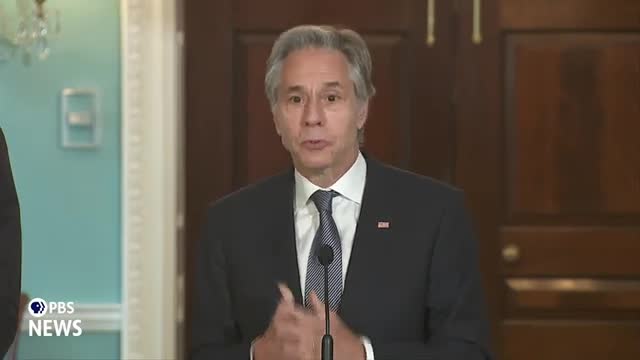Music as a powerful force for global diplomacy

This article was created by AI summarizing key points discussed. AI makes mistakes, so for full details and context, please refer to the video of the full meeting. Please report any errors so we can fix them. Report an error »

In a recent discussion highlighting the profound impact of music as a diplomatic tool, speakers emphasized its ability to transcend cultural and political barriers. The conversation drew on historical examples, illustrating how American musicians have played pivotal roles in fostering international connections.
One notable instance cited was Louis Armstrong's visit to Ghana during its independence, where he expressed a deep kinship with the local populace. Armstrong's experience was marked by a blend of inspiration from Ghana's liberation and sorrow over shared struggles faced by both Ghanaians and African Americans. His poignant performance of \"Black and Blue,\" which reflects the pain of racial discrimination, resonated deeply with audiences, showcasing music's capacity to articulate complex emotions that words alone cannot convey.
The discussion also referenced the Cold War era, where figures like Leonard Bernstein and the New York Philharmonic endeared themselves to audiences in Moscow by performing the works of Shostakovich. Similarly, Sarah Vaughan's concerts in the former Yugoslavia during the 1970s and Bruce Springsteen's electrifying performance in Berlin just before the fall of the Wall further exemplified music's role in bridging divides.
Additionally, Whitney Houston's appearance alongside Nelson Mandela in post-apartheid South Africa underscored the unifying power of music in moments of significant political change. These examples collectively illustrate how American artists have utilized their craft to foster understanding and solidarity across borders, reinforcing the notion that music serves as a universal language capable of addressing shared human experiences.
One notable instance cited was Louis Armstrong's visit to Ghana during its independence, where he expressed a deep kinship with the local populace. Armstrong's experience was marked by a blend of inspiration from Ghana's liberation and sorrow over shared struggles faced by both Ghanaians and African Americans. His poignant performance of \"Black and Blue,\" which reflects the pain of racial discrimination, resonated deeply with audiences, showcasing music's capacity to articulate complex emotions that words alone cannot convey.
The discussion also referenced the Cold War era, where figures like Leonard Bernstein and the New York Philharmonic endeared themselves to audiences in Moscow by performing the works of Shostakovich. Similarly, Sarah Vaughan's concerts in the former Yugoslavia during the 1970s and Bruce Springsteen's electrifying performance in Berlin just before the fall of the Wall further exemplified music's role in bridging divides.
Additionally, Whitney Houston's appearance alongside Nelson Mandela in post-apartheid South Africa underscored the unifying power of music in moments of significant political change. These examples collectively illustrate how American artists have utilized their craft to foster understanding and solidarity across borders, reinforcing the notion that music serves as a universal language capable of addressing shared human experiences.
View full meeting
This article is based on a recent meeting—watch the full video and explore the complete transcript for deeper insights into the discussion.
View full meeting